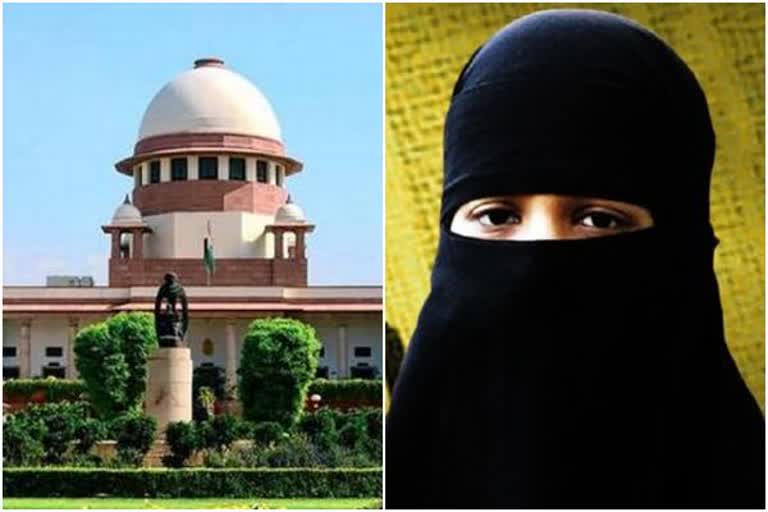New Delhi: The Supreme Court on Friday agreed to examine the validity of a newly enacted law which makes the practice of instant divorce through triple talaq among Muslims a punishable offence entailing imprisonment of up to three years.
A bench of justices N V Ramana and Ajay Rastogi issued notice the Centre on a batch of petitions which has sought to declare The Muslim Women (Protection of Rights on Marriage) Act 2019 as "unconstitutional" on grounds that it allegedly violates the provisions of the Constitution.
"We will examine this," the bench told senior advocate Salman Khurshid, who was appearing for one of the petitioners.
Khurshid told the bench that there were many dimensions, including making the practice a punishable offence and jail term of up to three years, which was required to be examined by the top court.



